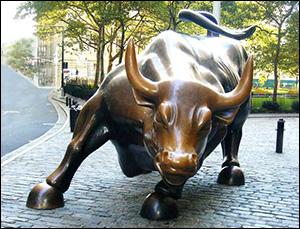By Pam Martens and Russ Martens: December 20, 2017
Like that box of macaroni in your kitchen cupboard, the U.S. stock market has become a lot more expensive but has actually shrunk in terms of quantity.
In 1975, U.S. domestic companies that traded on U.S. exchanges totaled 4,819. Forty years later, the market has shrunk to less than 4,000, despite a tripling in GDP.
If you take a shorter time span of 20 years, which included the dot.com craze of listing companies known to Wall Street insiders as “crap” and “dogs,” the numbers are worse. In September of last year, Jim Clifton, the Chairman and CEO of Gallup, the polling company, reported the following:
“The number of publicly listed companies trading on U.S. exchanges has been cut almost in half in the past 20 years — from about 7,300 to 3,700. Because firms can’t grow organically — that is, build more business from new and existing customers — they give up and pay high prices to acquire their competitors, thus drastically shrinking the number of U.S. public companies. This seriously contributes to the massive loss of U.S. middle-class jobs.”
As of early 2017, according to Ernst & Young, just 140 of these publicly traded companies represented more than half of the total market value of all stocks traded in the U.S. Another stark example of the dangerous trend of wealth concentration in the U.S.
The dangerous trend in the stock market follows an even more dangerous trend in U.S. banking. A March 31, 2016 report from the Federal Reserve shows that of the six mega Wall Street banks that make up the core of the U.S. financial system, just four of those banks (JPMorgan Chase, Wells Fargo, Bank of America and Citibank) hold $6.7 trillion in assets out of the $15.9 trillion total held by all 6,000 commercial banks, or 42 percent of the total.
These anti-democracy trends of concentrated wealth have led to dystopian political power in Washington. The wealthiest one percent has led what amounts to a hostile corporate takeover of Congress and the Executive branch. One needs no greater proof than the current tax bill. According to the latest NBC News/Wall Street Journal Poll, nearly two-thirds of those polled believe the tax bill was drafted to benefit corporations and the wealthiest Americans.
Despite there being the missing constituent support for this unprecedented legislation, it appears headed for passage. The good news is that Americans seem to be, finally, waking up to the critical difference between a democracy that reflects the will of the governed and a plutocracy ruled by and benefiting the one percent.


